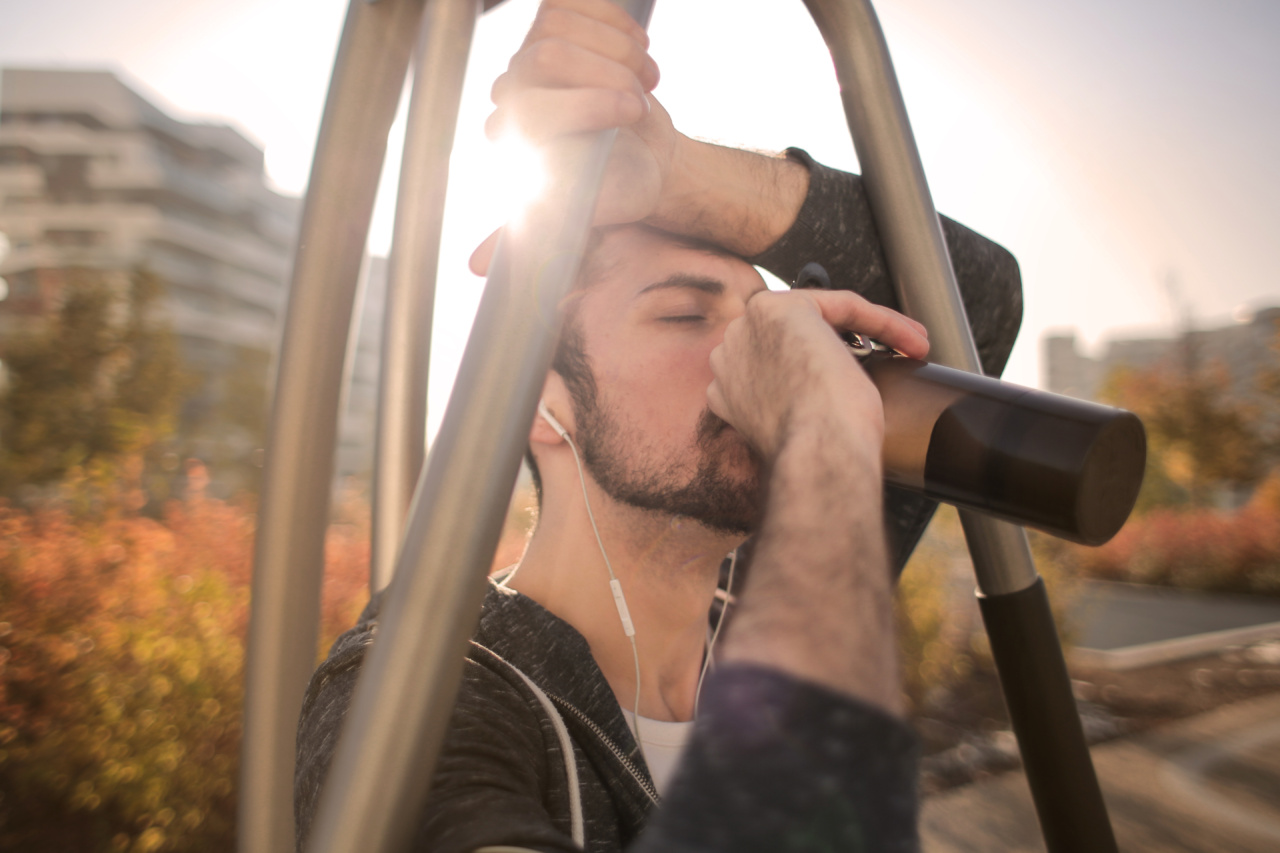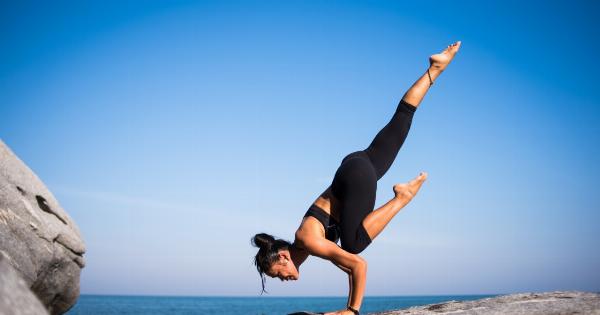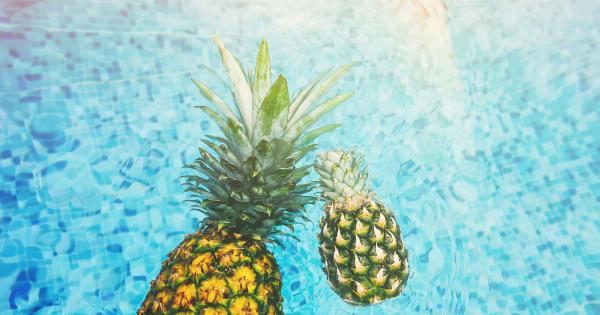During the summer months, when the temperature soars, it is crucial to stay hydrated in order to prevent heat exhaustion. Water is your best friend when it comes to staying hydrated.
The body needs an adequate amount of water to function properly and this is especially true during physical activity. When you sweat, your body loses fluids along with important electrolytes such as sodium, potassium, and magnesium. These electrolytes are responsible for maintaining the balance of fluids in your body and are crucial for muscle and nerve function.
To stay cool and prevent heat exhaustion during your summer workouts, make sure to drink plenty of water before, during, and after your exercise sessions.
Add a Splash of Electrolytes: Sports Drinks
In addition to water, sports drinks can be a great way to replenish the electrolytes lost through sweat. Sports drinks typically contain a mix of carbohydrates, electrolytes, and fluids that can help with hydration and energy replenishment.
However, it’s important to note that sports drinks should be consumed in moderation, especially if your workout doesn’t involve high-intensity activities or extended durations. Too much sugar and unnecessary calories can be counterproductive, so be mindful of your intake. If you’re engaging in intense workouts or extended periods of physical activity, a sports drink can be a great addition to your hydration routine.
The Power of Fruits: Refreshing and Nutritious
In the summer heat, fruits can be a refreshing way to satisfy your hunger and fuel your body. Fruits are packed with vitamins, minerals, and antioxidants that can aid in muscle recovery and overall health.
Some fruits, like watermelon and oranges, have high water content, which can contribute to your hydration. Others, such as bananas and berries, are rich in carbohydrates and provide a natural source of energy for your workouts.
Incorporating fruits into your pre or post-workout snacks can be a delicious and nutritious way to prevent heat exhaustion and keep your energy levels up.
Light and Refreshing Snacks: Optimal Fuel for Summer Workouts
When it comes to summer workouts, it’s important to choose snacks that are light, easy to digest, and provide a good balance of nutrients. Opt for snacks that are low in fat and high in carbohydrates to give your body the energy it needs.
Some ideal options include Greek yogurt with honey and fruits, trail mix with nuts and dried fruits, or a whole grain wrap with lean protein and veggies. These snacks are not only tasty but also provide the necessary fuel to keep you going during your summer workouts while avoiding the risk of heat exhaustion.
Hydration Beyond Water: Infused Water and Iced Tea
If you’re looking for a more flavorful way to stay hydrated during your summer workouts, infused water and iced tea can be great alternatives.
Infused water involves adding slices of fruits, herbs, or even cucumber to your water to naturally infuse it with flavor. This can make hydrating feel more enjoyable and encourage you to drink more water throughout the day.
Iced tea, whether it’s herbal or green tea, is another tasty option that can provide hydration while offering additional benefits such as antioxidants. Just be mindful of added sugars when opting for flavored or sweetened teas.
The Downside of Caffeine: Limit Your Intake
While a cup of coffee or tea can help give you a boost before a workout, it’s important to be mindful of caffeine intake, especially during hot summer months.
Caffeine is a diuretic, which means it can increase urine production and potentially lead to dehydration if consumed in excess. If you do consume caffeinated beverages, make sure to balance it with an equal amount of water or other hydrating fluids to offset its potential dehydrating effects.
Additionally, be aware that excessive caffeine consumption may increase heart rate and body temperature, which can put additional stress on your body during summer workouts.
Timing Matters: When to Eat Before and After Workouts
In order to prevent heat exhaustion and optimize your performance during summer workouts, it’s important to pay attention to your pre and post-workout nutrition.
Before exercising, make sure to give yourself enough time to digest your meal or snack. Consuming heavy or greasy foods right before a workout can lead to discomfort and decrease your energy levels. Aim to eat a well-balanced meal containing carbohydrates, protein, and a small amount of fat 2 to 3 hours before your workout.
This will provide your body with the necessary fuel to power through your exercise session. After your workout, replenish your energy stores and aid in muscle recovery by consuming a snack or meal within 30 to 60 minutes. Opt for a combination of carbohydrates and protein to refuel and repair your muscles.
Stay Cool with Hydrating Foods: Cucumber, Watermelon, and More
In addition to drinking plenty of fluids, incorporating hydrating foods into your summer diet can help prevent heat exhaustion. Cucumber is an excellent choice as it contains about 96% water and provides a refreshing crunch.
Watermelon is another hydrating fruit that can keep you cool and provide essential nutrients like vitamins A and C. Other hydrating foods include celery, strawberries, lettuce, and grapes. These foods not only contribute to your water intake but also provide important vitamins, minerals, and antioxidants to support your overall health.
Listen to Your Body: Signs of Dehydration and Heat Exhaustion
During summer workouts, it’s crucial to listen to your body and be aware of the signs of dehydration and heat exhaustion. Dehydration symptoms include excessive thirst, dark-colored urine, dry mouth, fatigue, and dizziness.
If you experience any of these symptoms, it’s important to rehydrate immediately. Heat exhaustion is more severe and can occur when the body’s cooling mechanisms become overwhelmed. Signs of heat exhaustion include heavy sweating, nausea, headache, dizziness, muscle cramps, and a rapid heartbeat.
If you suspect heat exhaustion, stop exercising, find a cool and shaded area, and hydrate with water or a sports drink. If symptoms persist or worsen, seek medical attention.
Training Time: Schedule Your Workouts Wisely
Timing your workouts wisely can play a significant role in preventing heat exhaustion during the summer months. If possible, try to exercise during the early morning or late evening when the temperatures are lower.
This allows you to avoid the peak heat of the day and exercise in a cooler environment. If you must exercise during the day, choose shaded areas or indoor facilities with proper air conditioning.
Being mindful of the weather conditions and staying updated on heat advisories can also help you plan your workouts effectively and reduce the risk of heat-related illnesses.
Protective Measures: Clothing and Sunscreen
While fueling your body with the right foods and staying hydrated are vital, don’t forget about other protective measures during summer workouts. Wearing appropriate clothing can make a significant difference in preventing heat exhaustion.
Opt for lightweight, loose-fitting, and breathable fabrics that allow for better airflow and evaporation of sweat. Additionally, always remember to apply sunscreen before heading outside. Protecting your skin from harmful UV rays can prevent sunburn and reduce the risk of heat-related illnesses.
Choose a broad-spectrum sunscreen with a high SPF and reapply it every two hours, especially if you’re sweating excessively.




























